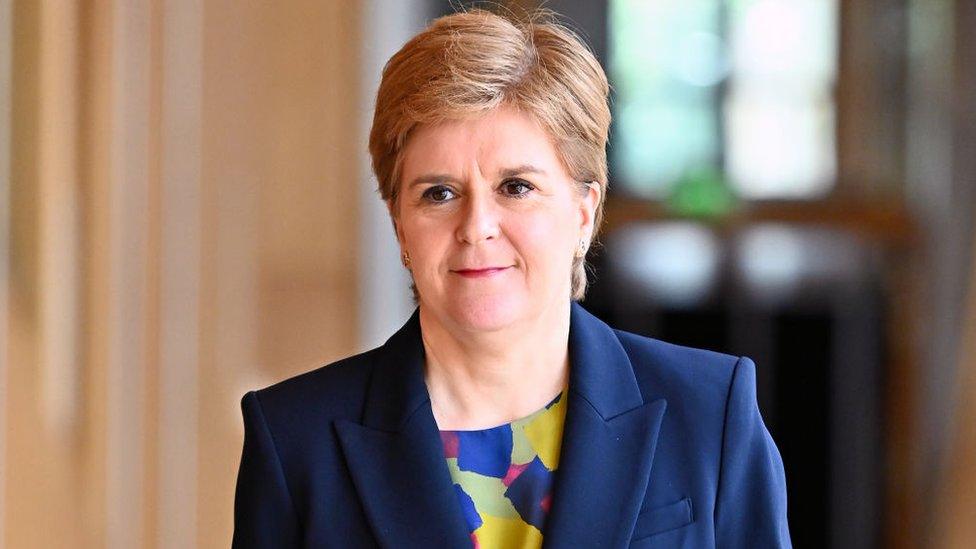Cost of living to dominate year ahead at Holyrood
- Published
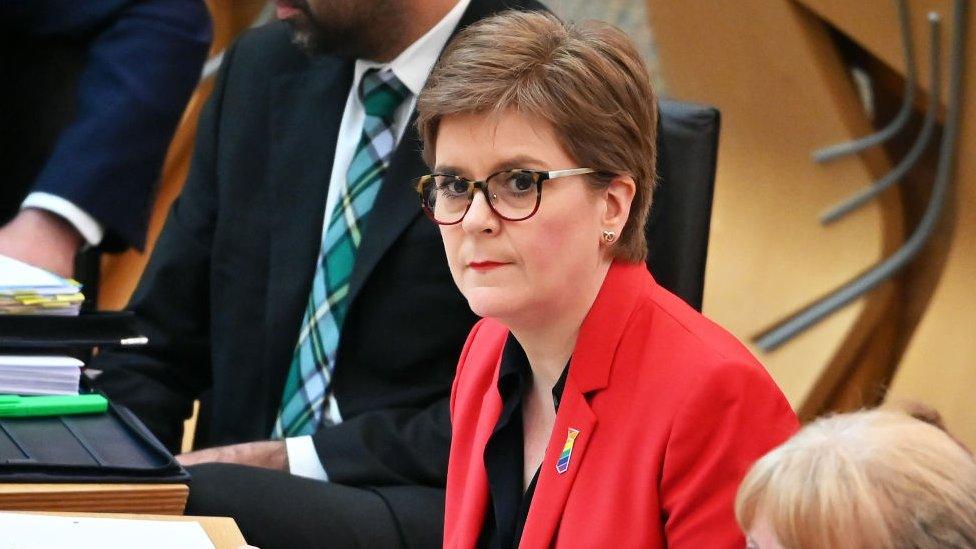
The cost-of-living crisis has dominated Nicola Sturgeon's plans for the year ahead at Holyrood - both in the actions her government plans to take, and the pressure it has put on its budget.
The first minister's annual "programme for government" announcement came hours after the new prime minister was sworn in up the road at Balmoral.
What Liz Truss decides to do will have a huge bearing on the response to rising prices and fuel bills in Scotland.
But what can Ms Sturgeon's government do with the powers it has - and how does the developing crisis impact on its ability to respond?

This was not a normal programme for government.
Usually at this stage in a parliamentary term, the first minister would be setting out expansive plans for future reforms, with a wide-ranging slate of legislation delivering on manifesto pledges.
But this year, in the teeth of a growing cost-of-living crisis, there was a deliberate attempt to focus in on the immediate problems facing households and businesses.
A decision was taken at the most recent meeting of cabinet to slash the overall size of the programme, with the document apparently going from about 160 pages to fewer than 40.
This was in part a move to underline how seriously and single-mindedly the government is taking the task of tackling rising costs and bills.
It is also a reflection of the fact that inflation is making it increasingly expensive for ministers to do anything at all.
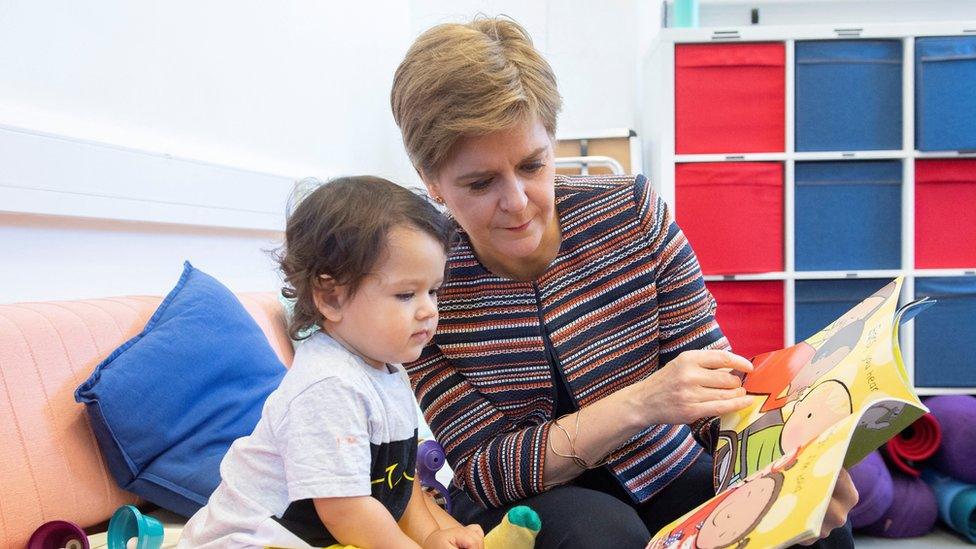
The Scottish Child Payment is at the centre of Ms Sturgeon's package of support
Ms Sturgeon was very clear about the scale of the challenge, saying the cost of living crisis was nothing short of a "humanitarian emergency".
She had written to Liz Truss calling for a four-nation summit while the new prime minitser was still in the air somewhere over Aberdeenshire, and is primed to draw up an emergency budget once it is clear how the new UK administration will act.
She wants that action to be swift and comprehensive, and is also looking to pull the levers at her own disposal.
Front and centre is an increase in the Scottish Child Payment to £25 per week, with eligibility to be expanded to a total of 400,000 under-16s from 14 November.
There will also be emergency legislation to introduce a rent freeze and a winter evictions ban, as well as an extension of a ScotRail fares freeze.
Given the SNP-Green administration has a majority, these plans are guaranteed to sail over any parliamentary hurdles - while opposition leaders will need to win them over to their proposals.
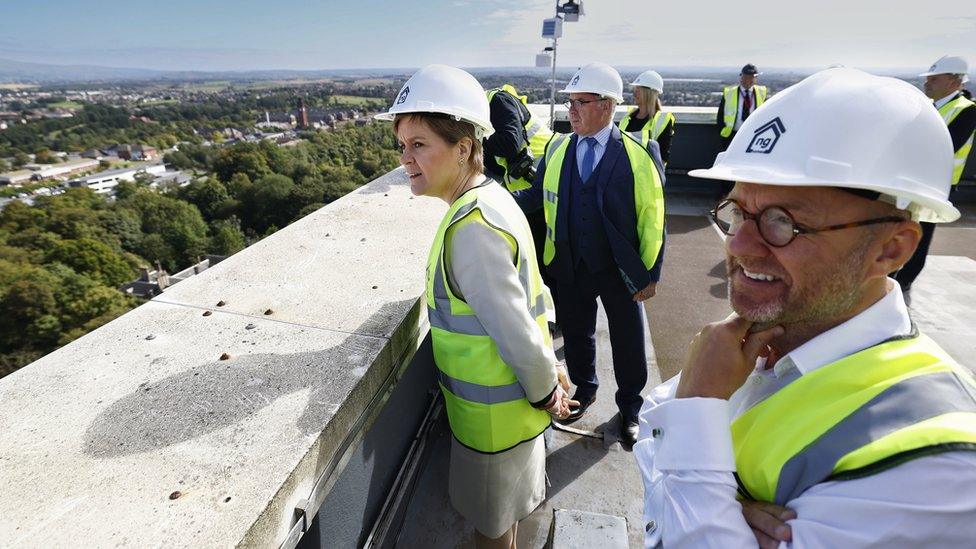
Scottish Green leaders like Patrick Harvie (right) hope to have an increasing influence on plans
Ms Sturgeon's speech will be closely linked to one the following day from John Swinney, her deputy who is currently standing in as finance secretary.
Broadly, she got the nice job of laying out what the government can do for people, while he will be the one wielding the axe to detail how it will all be paid for.
He will outline the latest on public sector pay talks as well as the outcome of an emergency review of the Scottish government's budget.
This has focused not just on where money might be shifted around to pay for extra support, but also on how the government's own accounts have been hit by inflation.
When prices go up, everything the government buys or pays for costs more. And sky-high inflation rates mean the budgetary figures worked out at the start of the year no longer make a huge amount of sense.
You can actually put a figure on it - Ms Sturgeon says the current year's budget is already worth £1.7bn less than it was when it was first published.
The same pressures have also prompted public sector pay increases costing £700m more than ministers had originally budgeted for - and we may only have scratched the surface of disputes on that front across a range of different industries.
Ms Sturgeon was blunt - paying for cost of living support "will mean stopping some of the things we planned to do, to fund what is essential to support people through this crisis".
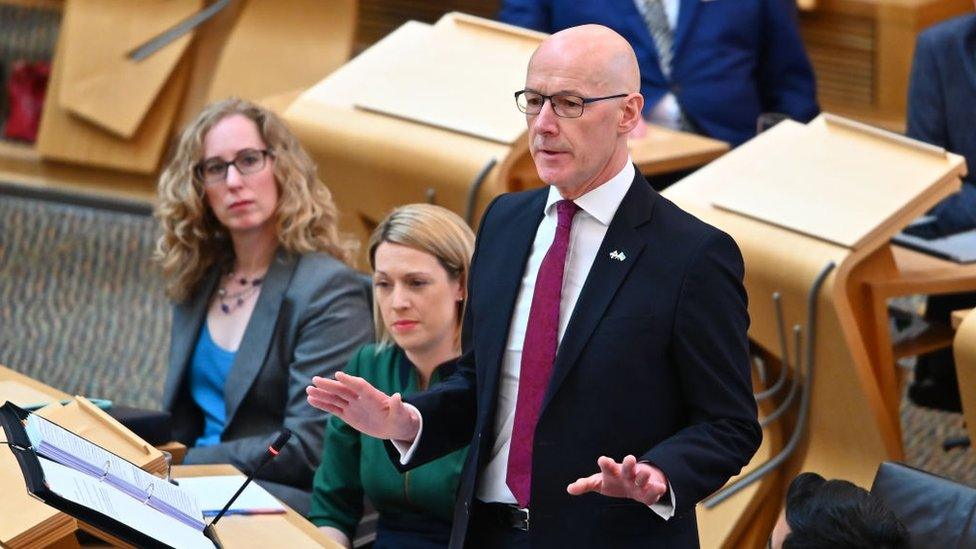
John Swinney has returned to the role of finance secretary while Kate Forbes is on maternity leave
There is also acknowledgement within the Scottish government that things are changing quickly.
Ms Truss is expected to set out her own plans in the coming days, with the new prime minister promising to take action to deal with surging energy costs.
It is unclear how her proposals might affect Holyrood's spending power. Tax cuts could, in theory, provide a budget boost for Mr Swinney because of the labyrinthine way income tax devolution works.
However if they are paid for by cutting departmental budgets down south, that could have a negative impact on the block grant.
Equally if spending on devolved areas increases at Westminster, there would be "Barnett consequentials" for Holyrood to spend.
It is a very muddy, complicated picture, and Scottish ministers fear it may not resolve itself into hard figures for weeks or even months in terms of their own planning.
Ms Truss is perhaps more aware of this than most, however - in a previous role as Treasury secretary she gave evidence to MSPs in the Holyrood chamber about the operation of the parliament's fiscal framework.
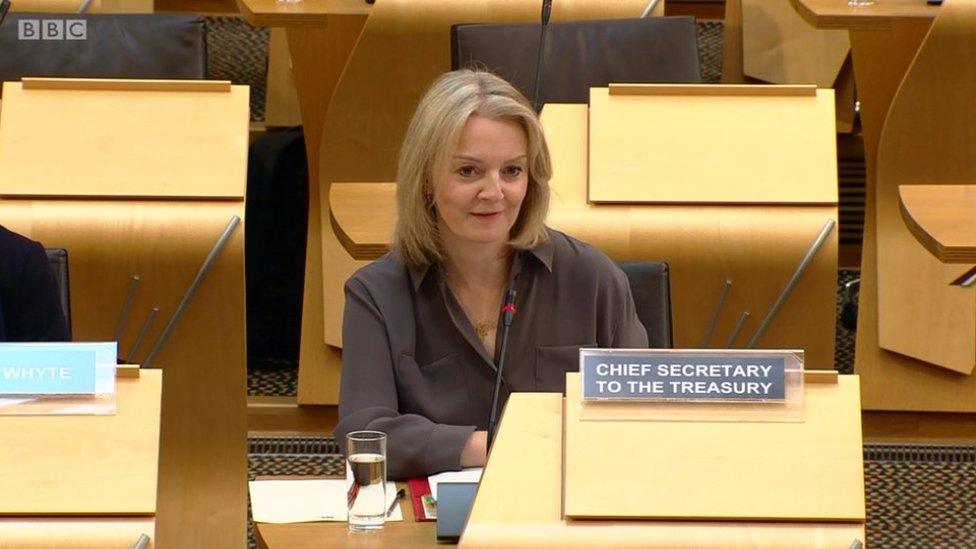
Liz Truss gave evidence to a Holyrood committee meeting inside the parliamentary chamber in 2018
As difficult as it may be to draw up plans in the current circumstances, it is what governments are for. To govern is to choose, and we do not elect leaders simply for the good times.
We already know many departments are facing real-terms cuts in the coming years amid a "reset" of public services.
However, we can expect progress on already-announced plans, like the Gender Recognition Bill - reforms centring on what has become a contentious subject, which ministers would thus like to push through parliament as quickly as possible.
Work will also continue on legislation to establish a National Care Service, another longer-term project which will require years of consultation and planning to bring to fruition.
Legislation will also be considered to set up a replacement for the Scottish Qualifications Agency, which is due to be scrapped as part of a shake-up of senior education.
And there are commitments tied to the party's alliance with the Scottish Greens, who have now spent a year in government and will hope to have a growing influence on policy.
Co-leader Lorna Slater has tabled a Circular Economy Bill, and is still working to get the deposit return scheme up and running.
The partnership agreement, external between the parties also promised legislation on energy efficiency and zero-emissions heating, which would fall within Patrick Harvie's remit.
The government will also support Green MSP Gillian Mackay's bill aimed at setting up buffer zones to prevent protests outside abortion clinics.
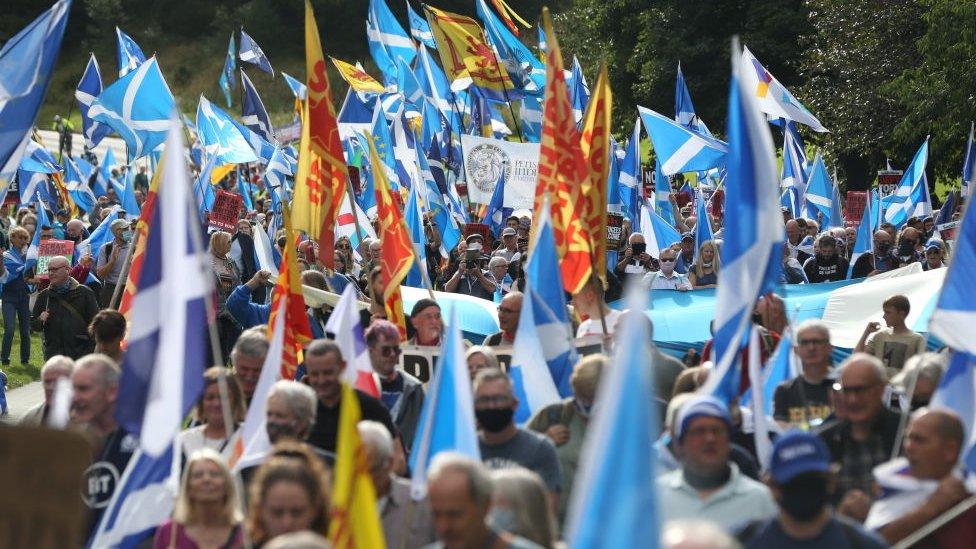
One other commitment Ms Sturgeon wants to stick to is her plan for an independence referendum in October 2023.
There was little in the way of new strategy in the speech, with the big plans already announced - a draft bill has been drawn up and referred to the Supreme Court.
That legislation will only be introduced at Holyrood if judges decide MSPs have the power to actually make it law, and they will hear arguments about that in October.
However, opposition leaders were quick to point to it as evidence Ms Sturgeon is not wholly focused on cost of living - that her eye is off the ball.
The first minister responded in turn that Scotland needs independence to fully respond to these problems - and indeed many others.
That is a debate which has been running since long before the current crisis, and is likely to continue regardless of how it plays out.
- Published6 September 2022
